Man About Town: Jibran Nasir Winning Hearts and Influencing People
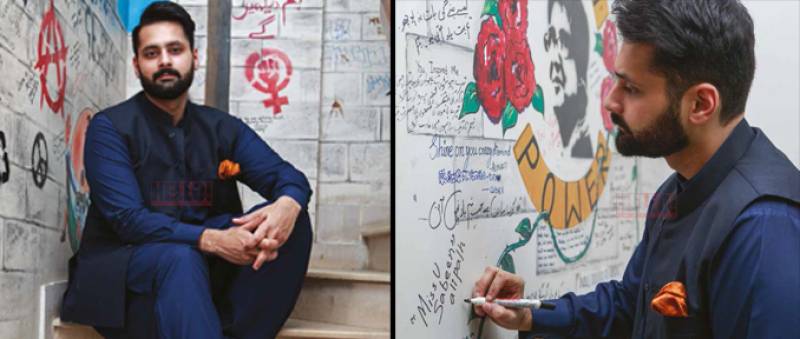
Tall, charming and with a commanding air about him, he is humble and down to earth with a schedule far too busy for a mere mortal. Advocating for what you believe in and dedicating your life to a cause it no easy feat; we are lucky to have got some one on one time with the activist to talk about what makes his line of work so unique. Needless to say, he is the inspiration we could all use.
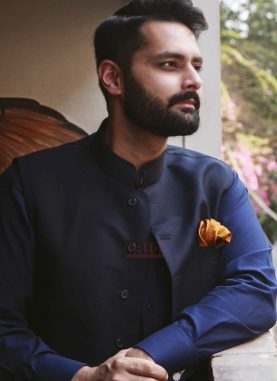
You have been at the forefront of activism for several years now. Remind us again of that watershed moment when you decided that this was to be your path forward?
I guess these decisions aren’t taken over night and they are usually a culmination of various sentiments and emotions after closely observing and
being sensitive to one’s surroundings. Ignorance is bliss and we can all choose to live in our respective bubbles or we can take the difficult decision to step outside of our comfort zone which I started doing with a flood relief camp in 2010. I had just finished my Masters in Law and instead of applying for a job I volunteered to run a food relief camp for (those affected by the) flood. The same work took me to various cities in Sindh and Balochistan where I saw families torn apart, displaced and desperate; the response of the Government was abominable. However, I pacified myself thinking it was an act of God, a natural disaster. Once I got involved in relief work for victims of terrorism, I could not find any excuse for myself or for this society. We were faced with a man-made catastrophe, a result of our own policies and politics. It was while running a medical relief camp at Abbas Town for
victims of the 2013 blast that I met seven-year old Abbas who came to our camp with his aunt. He was not physically injured in the blast but was severely traumatised. Being the eldest male in the family after his father, (a shopkeeper) near the blast site, he was asked to identify his father’s body in the rubble. The Government which does provide first aid and emergency services to those injured in terror attack has no provisions of mental healthcare for victims and their families. I decided that day that I will have to say goodbye to being a full time lawyer and my life as I know it.
Who or what has been your inspiration and guiding light through the years? What kind of support do you receive from that inspiration?
Nothing can be achieved alone. My work is exhausting physically, mentally and emotionally. Besides the threats, allegations and harassment I face from different quarters, given who I am standing up against, the most difficult part of being an activist is working with families who have suffered a personal loss. Every time I am invited on TV for a discussion, the background is a tragedy, where some injustice as taken place. It takes a toll on you. It would take a toll on anyone. I am only able to carry on my work due to support from family, friends and mentors. The biggest strength is to accept one’s weakness and mend oneself with the support of your loved ones so you can carry on the work.
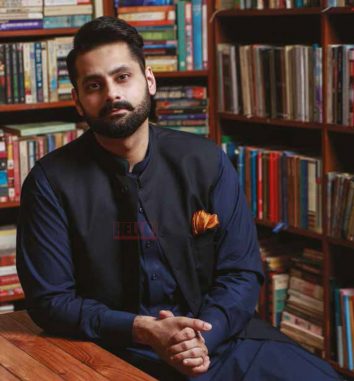
There are several heartbreaking issues for which you have lent your support and pushed for activism. What has been the most unforgettable and poignant for you?
They are all unforgettable. I do not and can not compare tragedies or weigh them in any manner. However, in the recent past the words of Iqbal Lala, Mashal Khan’s father, affected me the most. He spoke about his struggle not being about getting justice for his son but ensuring no one else is subjected to the injustice which Mashal suffered. It reinforced my faith in what it means to be a community, a nation and in the truth that we are
all connected and our actions, however big or small, impact society as a whole. The nation is heartbroken by the recent tragedy of Zainab — in fact, not only her but all the other young girls in Kasur.
You were there recently. What are your thoughts on this and how can we prevent this scourge from destroying our children?
Till very recently some of the most loved, celebrated and glorified men in the world were exposed as being sexual predators, abusing female as well as child actors in Hollywood. The women who spoke out were also celebrated actresses who revealed that many people in Hollywood, including co-actors, production houses and writers knew what was happening, but remained silent and in the process discouraged survivors and facilitated abusers. Now compare the loud, larger than life and apparently liberal world of Hollywood, with a conservative society, already suffering from patriarchal traditions and misogynistic tendencies, where we make victims of sexual abuse carry the collective burden of our shame and honour. It is
our collective silence which has been hurting our children the most and empowering those who abuse them. These days there are many advocating for public hangings but not willing to talk about educational reform, or opening up dialogue in society, spreading awareness amongst parents, forming
peer to peer groups and training and sensitising our police. For me, this is an easy way to write off guilt; venting our anger through a display of the
harshest punishment possible. Deterrence, by strict punishment alone, will not solve the problem. There is a reason that after so many military operations and executions through military courts, we are still feeling insecure and lamenting the failures of the National Action Plan: we never implemented the policy reforms we promised. Without real reforms, there cannot be real change.
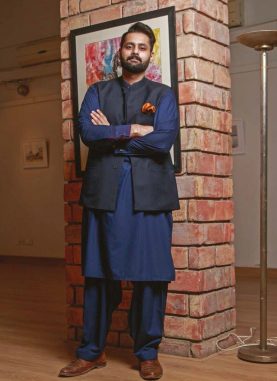
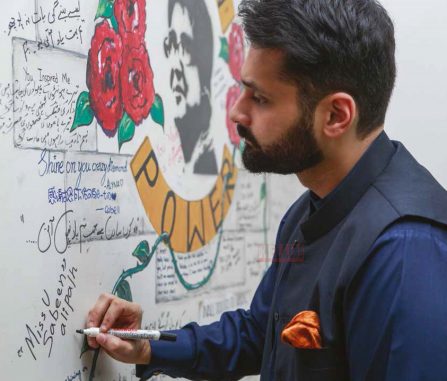
What are your dreams for a better Pakistan? Ideally where would you like to see our country? Realistically, what is the best that can happen this year?
We exist in the comity of nations and every day we are faced with new challenges, as well as new opportunities as the world evolves. I am afraid we
are not making most of the opportunities, and struggling to even meet old challenges, as new ones pile up. A better Pakistan needs better leadership, a better system of governance and that is only possible through a free electorate, making it possible for new leaders to emerge. For a free electorate we require land reforms and to break the shackles of the feudal system. As for new leaders, Social Media has had far more impact on our society compared to political parties. Social media has made people more politicised, aware and empowered. Now people know they are counted and heard. This free flow of information and introduction of talented young individuals as social and political activists can change the face of Pakistani politics.
We may already see some change taking place in the 2018 elections. How would you like privileged Pakistanis to walk the talk?
By admitting their privilege. Perhaps that may be a good way to start. We live in a pyramid-shaped society. We take abuse from those above us and
abuse those below us. We are all privileged in our own sphere. Education, health, fair trial, right to live, freedom of speech, religion, movement and trade are all claimed to be rights under our constitution. Rights are those which are guaranteed to every citizen and which every citizen can access. If that is not the case than all those rights are (a) privilege in effect which some of us can afford and some cannot.
How can young people who want to make a difference take sustainable action for change in society? What kind of commitment do they need to sign up for?
Not everyone in a society is supposed to be an activist. However, all of us should be socially responsible. A healthy society has a diversity of race, language, religion, gender and profession. I would be happier if we produced more artists and cultural icons as opposed to activists given how arts, literature, drama, music and films have tremendous potential to mould any society better than an activist. However, we all just need to be in tune with
our realities and again concentrate on that notion of nationhood and being a community.
We are all connected and all of us can do something in our own way to help each other. Tolerance, rule of law, justice… what else would you like to add here for a better Pakistan and what tops your list at the moment?
Hope and patience. Rome wasn’t built in a day and if fighting injustice was easy it would have
already been defeated.
What are some of the recent charities you have been involved with?
I support various causes from time to time in my limited capacity and that is the least I can do. It is the volunteer and management at those charities
which are putting in the hard work. However, I am more deeply involed with Elaj Trust where I serve on the board of trustees. I am happy to be part of an ongoing series of Public Service Messages (PSMs) there where we are focusing on mother and child health. The response to our PSM about postpartum depression was overwhelming.
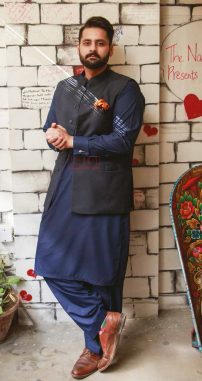
Since we are shooting at T2F, what is your fondest memory of Sabeen Mahmud?
When I filed nomination papers to contest elections as an independent candidate in 2013, I knew no one outside my family and a few work and school friends. Sabeen read a blog I had written about wanting to see how far a common man can go trying to serve people through politics. She got in touch with me through a mutual friend and called me to T2F for our very first meeting. She sat me down in her office and listened to my dreams and plans. She tried hard to control her laughter on my naivety I guess. She simply asked ‘campaign office hai tumhara?’ (do you have a campaign office?). I replied ‘No.’ She further asked ‘Paisay hain campaign karnay kay liye?’ (Do you have the money to campaign?) I replied, ‘Aik mahinay ki tankhua hai which is 50,000.’ (One month’s salary which is PKR 50,000). I didn’t know at the time what made her trust me, but as I worked with her, I found that she was just that kind of a person, wanting to see and encourage the good in everyone. She offered me a free space at T2F to use as a campaign office and called up all her friends — from graphic designers to photographers and other in media — asking them to help me run my campaign. They all volunteered for free, based on her good word. She gave me wings when I was still learning how to walk.
If you were not a political activist, you would be…?
A lawyer who still secretly wanted to pursue theatre!
On a less serious note, what do you do for fun?
There is nothing more relaxing than the company of good friends where I can just be myself and not carry the weight of any expectations. We should not have any shame in admitting that we are humans and we need a break at times.
INTERVIEW: SHERAZADE KHAN
PHOTOGRAPHY: SM UMAIR
LOCATION: T2F KARACHI
Keep up to date with H! Pakistan and Grazia Pakistan, subscribe now!
- Tags: Elections 2018, Exlcusive, Jibran Nasir, pakistan, Politician
